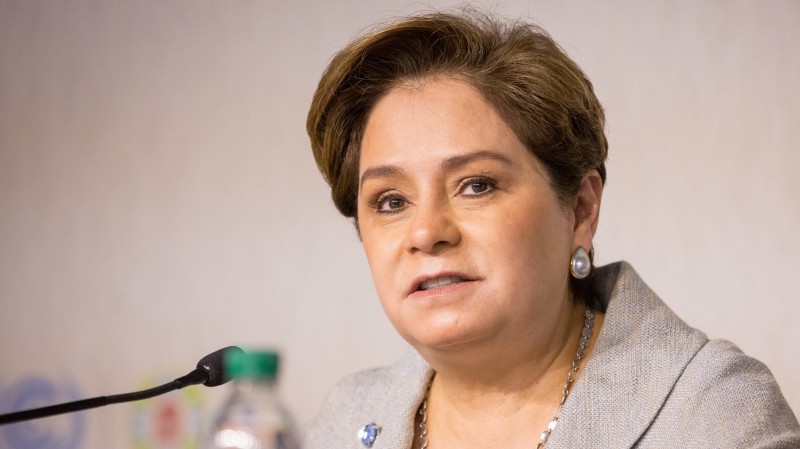US president Donald Trump is set to decide whether to quit UN climate talks by the G7 summit in late May, a White House spokesman said on Thursday.
The administration has already declared its intent to axe America’s €4 million (US$4.3m) annual contribution to the UN climate body’s core budget. That represents a 15% chunk out of the organisation’s income, as it grapples with a heavy workload to implement the 2015 Paris Agreement.
In a statement on Friday, its top official Patricia Espinosa declined to criticise the move, saying only she was “watching these developments with interest”.
“Budget proposals in the United States often involve long and complex negotiations before they are finally approved in part or in full by Congress,” she wrote. “It is not for the secretariat to comment on the domestic policies of a Party or member state to the United Nations.”
Weekly briefing: Sign up for your essential climate news update
Nick Nuttall, spokesman for the UN climate body, told Climate Home a country could stay in the process even if it did not pay up.
The US is the biggest single contributor to the body, but it would not be the only one to lapse on its payments.
As of 21 October 2016, 84 countries had delivered on their funding pledges, while nine had arrears dating back to 1996. Brazil owed €1.2 million, China €600,000 and Venezuela €500,000.
“The governments pledged some money to us and we look forward to them paying those sums of money,” said Nuttall. “That money comes in at all kinds of different times during the year… it can be very unpredictable for us.”
That uncertainty is common across UN agencies, he noted, with income fluctuating as countries’ financial circumstances change. “We have within the last year spent some efforts to reach out to governments that maybe have fallen short,” Nuttall added. If some of the money does not come in, “then we would have to cut back on some of our activities.”
The body has an approved core programme budget of €27 million for 2017. Espinosa is seeking a 7.9% increase for the 2018-19 period, to be discussed at the next interim talks in May. This covers “urgent support needs” to put the Paris Agreement into practice.
Early drafts of the Paris pact saw it enter into force in 2020, but a last-minute change of wording allowed for it to become international law last year. That has put the pressure on negotiators and the secretariat to flesh out the rulebook – fast.
Indicative national contributions to the climate budget are determined by a formula agreed at the UN general assembly.
US ambassador Nikki Haley has accused the UN in general of overspending and relying too heavily on the US. A spokesperson for secretary general Antonio Guterres retorted that abrupt funding cuts would undermine longer term reform.
